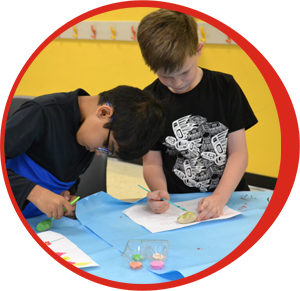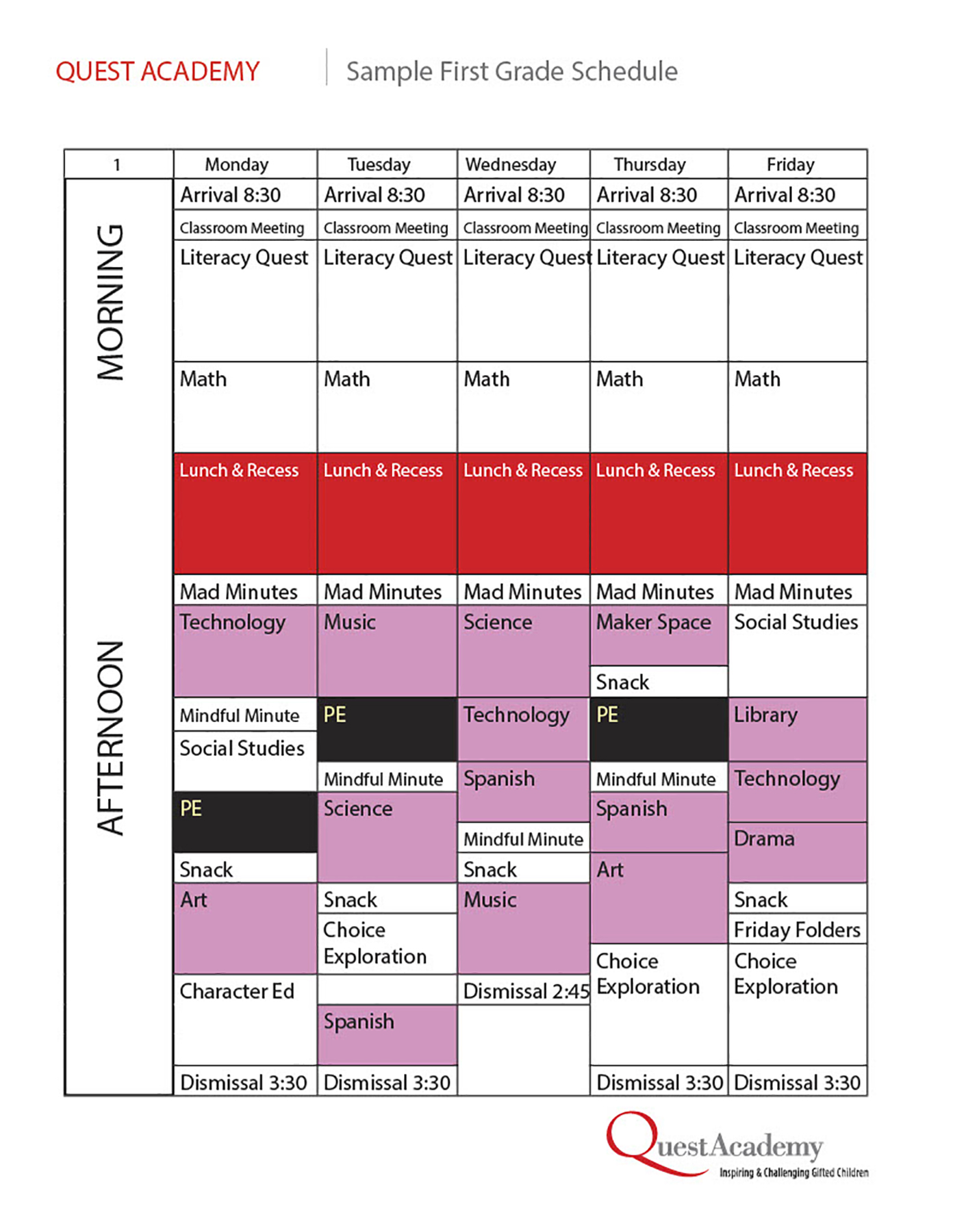Language Arts focuses on six key areas: phonemic awareness, phonics, fluency/oral reading skills, spelling vocabulary, comprehension and writing. Guided reading is a vital part of the first grade reading program. Students experience composing written work in stages: generating and organizing creative ideas, producing a draft, and sharing ideas with others for the purpose of gaining feedback.
In social studies, students learn about social relationships and functioning of society while making connections with their own world. The overall goal in social studies is to incorporate and connect what the students know with what is happening in the real world. As an example, the study of oceans provides opportunities for first grade students to explore and research animals in the ocean, the characteristics and features of the ocean, and how people interact within the ocean habitat in a positive or negative way.
The University of Chicago’s Everyday Mathematics is a spiraling curriculum that introduces topics to varying degrees in each grade. The first grade program follows the second grade curriculum and offers daily practice and review of skills and concepts introduced in kindergarten (first grade curriculum). Differentiated problem solving opportunities are explored by means of group challenges and activities, collaborative discussions, and independent projects; all of which foster and strengthen the development of mathematical intuition and critical thinking. Logical reasoning activities allow the learner to practice strategies, decisions, choices, and even behaviors of an independent, confident learner who is willing to make mistakes. The big understanding is for children to understand the process of solving a problem.
Establishing good character is essential to each child’s success, confidence and well-being. It is important for each child to develop self-discipline and good work habits, to resolve conflicts peacefully, problem solve, and to think independently. Quest Academy’s twelve character traits include: respect, self-discipline, industry, compassion, patience, courage, honesty, modesty, gratitude, loyalty, responsibility, and generosity. The three things we know about character development: 1. Character is continuously being taught and learned. 2. Our personal character traits are constantly growing and changing. 3. We will make mistakes and learn from them.





































